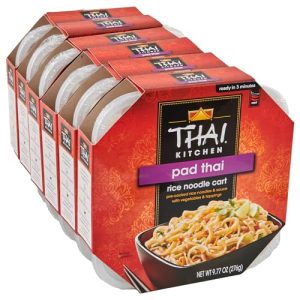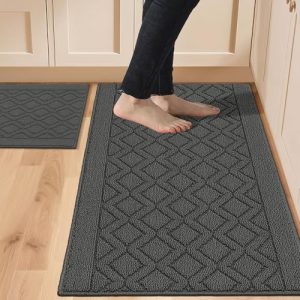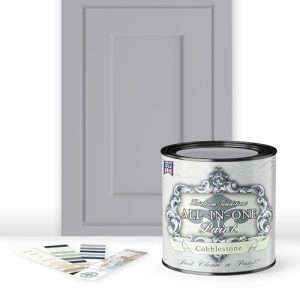Have you ever left your refrigerator door open, hoping it would cool down your kitchen? It sounds like a simple way to beat the heat, right?
But does it really work, or are you just wasting energy? If you’ve ever wondered whether your fridge can double as a cooling device for your room, this article will clear up the mystery. Keep reading to find out why leaving your fridge door open might not be the smart cooling hack you think it is—and what you can do instead to keep your kitchen comfortable.
How Refrigerators Work
Understanding how refrigerators work helps explain why leaving the door open does not cool a kitchen. These appliances use a special system to remove heat from inside and release it outside. They do not create cold air but move heat away from stored food.
Basic Cooling Mechanism
A refrigerator uses a refrigerant, a liquid that absorbs heat inside the fridge. This liquid evaporates, turning into gas as it takes heat from the interior. Then, the gas flows to the back of the fridge, where it cools down and turns back into liquid. This cycle repeats, keeping the inside cold.
Heat Transfer Process
The refrigerator moves heat from the inside to the outside. The compressor compresses the refrigerant gas, increasing its temperature. The hot gas then passes through coils at the back, releasing heat into the kitchen air. This process warms the kitchen slightly, even though the fridge interior stays cold.
What Happens When The Door Is Open
Opening a refrigerator door affects both the fridge and the room around it. The fridge tries to keep its inside cold by using a cooling system. When the door stays open, this system works harder. This changes temperatures inside and outside the fridge.
Effect On Internal Temperature
The fridge’s cold air escapes through the open door. Warm air from the room enters inside. This makes the fridge warmer than usual. The cooling system runs longer to bring the temperature down. It uses more energy and can wear out faster. Food inside may spoil quicker if the door stays open too long.
Impact On Room Temperature
Many think an open fridge cools the kitchen. Actually, it adds heat to the room. The fridge removes heat from inside and moves it outside. This heat release raises the kitchen temperature. Running the cooling system more also produces extra heat. Over time, the room becomes warmer, not cooler.
Common Misconceptions
Have you ever wondered if leaving the refrigerator door open can help cool your kitchen? This is a common misconception that many people believe. Let’s dive into why this myth persists and what science has to say about it.
Why People Think It Cools The Room
At a glance, it seems logical. When you open the refrigerator, cold air flows out, creating a cool breeze. You might have noticed this when standing in front of an open fridge on a hot day, feeling the temporary relief from heat.
People often assume that if a little cold air feels refreshing, more must be even better. It’s easy to conclude that a constantly open refrigerator door could act like an air conditioner, cooling the entire kitchen.
But is this really the case? Or is it just a trick your senses play on you? Understanding the science behind it can change your perspective.
Scientific Perspective
Refrigerators aren’t designed to cool open spaces. They work by removing heat from the inside and releasing it outside. When the door is open, the fridge tries harder to cool, consuming more energy.
This effort results in heat being released into the kitchen, not cooling it down. Essentially, an open fridge ends up warming the room instead of cooling it. It’s like trying to fill a bucket with a hole in it—inefficient and counterproductive.
Think about this: Have you ever noticed the warm air blowing out from the back of your refrigerator? That’s the heat it’s trying to expel while the door is closed. Leaving it open only makes this worse, turning your kitchen into a sauna rather than a cool haven.
Understanding these dynamics can help you make more energy-efficient choices at home. Would you still leave your fridge door open, thinking it cools your kitchen? Or will you close it, saving energy and keeping your kitchen comfortable?
Energy Consumption And Efficiency
Leaving a refrigerator door open affects its energy use and efficiency. The fridge must work harder to keep cool, using more electricity. This impacts your energy bills and the appliance’s lifespan. Understanding how energy consumption changes helps explain why a fridge does not cool a kitchen.
Increased Power Usage
When the door stays open, warm air enters the fridge. The cooling system activates more often to lower the temperature inside. This causes the compressor to run longer and use extra power. Energy costs rise because the fridge struggles to maintain cold air. This wastes electricity and makes the appliance less efficient.
Wear And Tear On Components
The fridge parts work harder with the door open. The compressor and fans run constantly, causing faster wear. Over time, this leads to breakdowns and repairs. The fridge’s lifespan shortens as parts wear out sooner. Keeping the door closed helps protect the appliance and saves money on maintenance.
Alternative Ways To Cool A Kitchen
Keeping your kitchen cool can feel like a challenge, especially during hot days. Instead of relying on tricks that don’t work, like leaving your refrigerator door open, there are smarter, more effective ways to lower the temperature. Let’s look at some practical options you can try right now to make your kitchen more comfortable.
Using Fans And Ventilation
Fans can be surprisingly powerful tools for cooling your kitchen. Placing a fan near an open window helps push hot air out, while pulling cooler air inside. This simple setup can quickly reduce the temperature without using much electricity.
Ceiling fans or portable fans also help by circulating air, which makes your skin feel cooler. You might not change the actual temperature much, but moving air can make the space feel fresher and less stuffy. Have you ever noticed how a breeze feels cooler even on a warm day? That’s the effect fans create indoors.
Consider installing a vent or exhaust fan near the stove to pull out hot air and cooking smells. This keeps heat from building up and makes your kitchen more pleasant to work in. It’s a small addition that can make a big difference.
Air Conditioning Options
If you want to cool your kitchen more effectively, air conditioning is a solid choice. A window AC unit can target the kitchen specifically and cool it down fast. These units are fairly easy to install and can be a good investment if you spend a lot of time cooking during hot months.
Central air conditioning is another option, especially if your whole home needs cooling. It keeps the temperature consistent everywhere, including your kitchen. However, this might come with higher installation and running costs.
For a more energy-efficient option, you might explore portable air conditioners. These units can be moved from room to room, giving you control over where you want cool air. They require a nearby window for venting but can be a flexible solution if you don’t want a permanent fixture.
Frequently Asked Questions
Does An Open Refrigerator Door Cool A Kitchen Effectively?
No, an open refrigerator door does not cool a kitchen. It releases heat generated by the compressor, increasing room temperature.
Why Does A Fridge Door Open Not Lower Kitchen Heat?
When open, the fridge works harder, producing more heat. This heat offsets any cooling effect, making the kitchen warmer.
Can Leaving The Fridge Door Open Save Energy?
No, leaving the fridge door open wastes energy. The appliance runs continuously, increasing electricity usage and wear on components.
How Does A Refrigerator Cool Inside But Heat The Room?
A refrigerator removes heat from inside and releases it outside. This process warms the surrounding air, not cools it.
Conclusion
A refrigerator with its door open does not cool a kitchen. It actually makes the room warmer. The fridge works harder, using more energy. This wastes electricity and can cause damage. Keeping the door closed helps the fridge work well.
It also keeps your kitchen comfortable and saves money. So, always close the fridge door tight. That way, your kitchen stays cool and your fridge stays healthy. Simple, right?

Sophie Hartwell is the founder of KitchenQuik.com, where she shares kitchen tips, smart cooking hacks, and the best product picks to make everyday cooking easier and more enjoyable.




